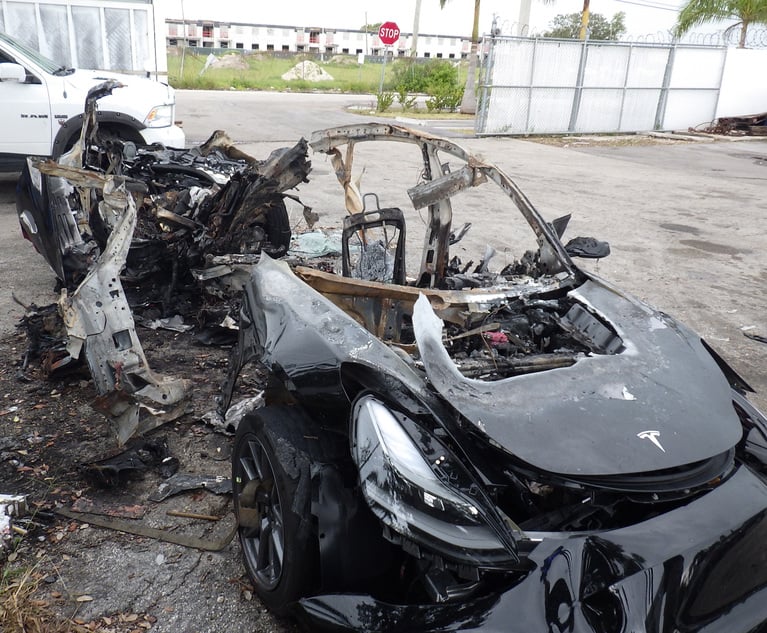In the parlance that weather-guessers would use in describingthe situation, the outlook for long-term reauthorization of afederal backstop for terrorism risk insurance in its present formis cloudy, and that is being optimistic.
|The stakes are high for U.S. property and casualty insurers.
|In a “special comment” in June dealing with the now two-yeareffort to get the Terrorism Risk Insurance Act (TRIA) reauthorized,Moody's Investors Service said, “Non-renewal of the program couldresult in significant insurance market dislocations, with coverageless widely available, more costly and perhaps unavailable in largeurban markets.”
|Jimi Grande, senior vice president of federal and politicalaffairs for the National Association of Mutual Insurance Companiessays, “When Congress takes a break from the campaign trail nextmonth, the property and casualty insurance industry will be focusedon bringing one item to the agenda: reauthorization of TRIA.”
|He adds, “TRIA shouldn't be a partisan issue. In the Senate, wehad 93 votes to reauthorize it.”
|Insurance-industry officials are being adroit in discussing thepresent situation, but the fact is Congress will likely only be insession for two weeks starting Sept. 8 before the Novembermid-terms, and the odds for reauthorization in its acceptable formwill drop precipitously if action is delayed until the lame ducksession.
|“We are telling members of the House that is critical that abill be passed this month so that we can get a long-term bill thisyear,” as stated by one industry lobbyist who asked not to benamed. The reason, he says, is that lame duck sessions of Congressare “notoriously unpredictable, and we are trying to take theunpredictability out of the equation.”
|Hensarling's bet
|One source of unpredictability: the midterm elections. Theconsensus among electoral pundits is that Republicans will takecontrol of the Senate, which would strengthen the hand of Rep. JebHensarling, R-Texas, chairman of the House Financial ServicesCommittee, and fellow conservatives who are aiming to enactlegislation that phases out the current system over five years andreplaces it with one that will provide a federal backstop afterthat period only for nuclear, biological, radiological, and/orchemical (NBCR) events.
|Hensarling previously proposed a clean TRIA extension through August,which an industry official said at the time amounts to a bet that amore conservative Congress would be in place by then that would bewilling to pass a severely slimmed down TRIA.
|Hensarling would like to pass H.R. 4871, the TRIA Reform Act of2014. That bill calls for gradually increasing the program triggerfor all non-nuclear, biological, radiological, and/or chemical(NBCR) events, from $100 million to $500 million by 2019, whichindustry officials say effectively phases out the program fornon-NBCR events.
|The Senate bill, meanwhile, is S. 2244, the Terrorism RiskInsurance Program Reauthorization Act of 2014. The Senate raisedthe insurer co-pay from the current 15% to 20%, and the mandatoryrecoupment from $27.5 billion to $37.5 billion over five years.
|In discussing the Senate bill, Sen. Tim Johnson, D-S.D.,chairman of the Senate Banking Committee said, “We were careful” inreaching this compromise that the Senate did not raise the trigger,which would drive smaller insurers out of the market and reduceaffordability of coverage for business nationwide. He said “thisbipartisan bill does not pick what modes of terrorism attacks wouldget preferential treatment over the other forms of attacks.”
|All about TRIA
|“I'd be stunned if anyone in the property and casualty insuranceindustry mentions anything else as a priority for September,”Grande says.
|“The fact is, Congress is only going to be in town for twoweeks, and given its record on last-minute must-do legislation, Iwouldn't bet the farm on that being a productive time,” hesays.
|“This is the last few weeks before they go home to facere-election; this will be about messaging for the campaign trail,”Grande says. “The substantive work, like keeping thegovernment funded, will be out of political necessity.
|“It's unfortunate that they have not been able to reauthorizeTRIA yet,” he adds. “We had a strongly supported bipartisan billpass the Senate in July, so they really should be out of excuses bynow.”
||In a policy paper, the Property Casualty Insurers Association(PCI) says the current version of TRIA is important because itaddresses the fact that “there is virtually no way to adequatelyinsure against terrorism.
|“Without data on the likelihood, frequency, and severity ofterrorist attacks, it is difficult and almost impossible forinsurers to adequately price and provide terrorism insurance. Andwithout terrorism insurance, commercial lending and financing formany construction projects that are critical to the economy coulddry up, putting countless parts of our nation's economicinfrastructure at risk.”
|The PCI paper says, “With TRIA currently on hold, some insurershave already advised their policyholders that terrorism coveragecould be excluded.
|“Delaying action into late fall is expected to create needlessuncertainty, added costs, and more disruptions in the insurancemarketplace. If businesses aren't able to secure terrorisminsurance, future public events or future construction projects maybe limited, delayed or abandoned and the added uncertainty and riskcould stifle business activity.”
|Nat Wienecke, senior vice president, government relations atPCI, says,
|“We are working aggressively to get House members to cometogether to strike a deal and get this off the floor in September.It is unclear if that is possible, but members are makinggood-faith efforts to have these conversations. But, I can'tpredict how this will turn out.”
|Will Rijksen, a spokesman for the American InsuranceAssociation, notes, “Given the fact that House members on bothsides of the aisle support TRIA, there's no reason we can't getthis done—the sooner the better.
|“AIA continues to meet with members of Congress to ensure theprogram receives a long-term renewal before its year-endexpiration.”
|Charles Symington, senior vice president for external andgovernment affairs for the Independent Insurance Agents and Brokersof America, says, “We're working hard to encourage the two camps inthe House to work out their differences over Hensarling's TRIAlegislation, and move the ball forward in that chamber as soon aspossible.”
|Joel Kopperud, a director of government affairs for the Councilof Insurance Agents and Brokers, adds, “The fact of the matter is,the clock is ticking and markets are moving. The House isonly in session for 10 days in September and there are some majordifferences that need to be worked out to move Hensarling's billforward.
|“The Senate did its job and moved on its bill, and now it's timefor the House to act. We understand that holding out until the lastminute is a common negotiating tactic, no matter which side you'reon, but markets don't respond well to uncertainty.”
Want to continue reading?
Become a Free PropertyCasualty360 Digital Reader
Your access to unlimited PropertyCasualty360 content isn’t changing.
Once you are an ALM digital member, you’ll receive:
- All PropertyCasualty360.com news coverage, best practices, and in-depth analysis.
- Educational webcasts, resources from industry leaders, and informative newsletters.
- Other award-winning websites including BenefitsPRO.com and ThinkAdvisor.com.
Already have an account? Sign In
© 2024 ALM Global, LLC, All Rights Reserved. Request academic re-use from www.copyright.com. All other uses, submit a request to [email protected]. For more information visit Asset & Logo Licensing.








